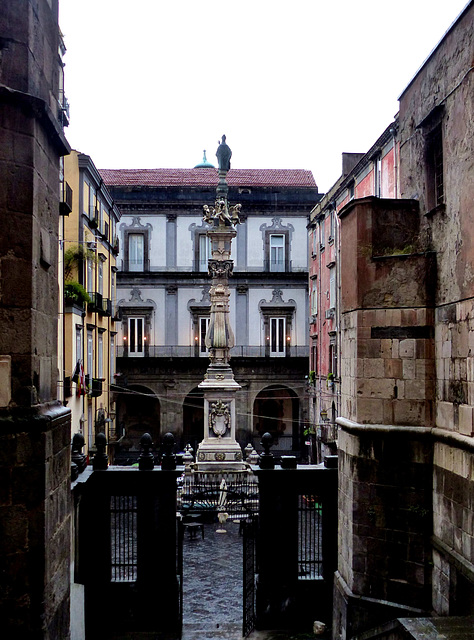Napoli - Castel Nuovo
Napoli - Chiesa della Graziella
Napoli - Palazzo Reale di Napoli
Napoli - San Francesco di Paola
Napoli - San Francesco di Paola
Napoli - Mount Vesuvius
Napoli - Bergavi
Napoli - Sant'Eligio Maggiore
Napoli - Obelisco dell'Immacolata
Napoli - Gesù Nuovo
Napoli - Galleria Umberto I
Napoli - Galleria Umberto I
Napoli - Galleria Umberto I
Napoli - Mount Vesuvius
Napoli - Santa Chiara
Napoli - Santa Chiara
Napoli - Santa Chiara
Napoli - Santa Chiara
Napoli - Santa Chiara
Napoli - Santa Chiara
Napoli - Santa Chiara
Napoli - Santa Chiara
Napoli - Santa Chiara
Napoli
Napoli
Napoli - Santa Croce e Purgatorio al Mercato
Napoli - Santa Maria del Carmine Maggiore
Napoli - Porta Nolana
Napoli - Santo Diego
Bitonto
Bitonto - Concattedrale di Bitonto
Bisceglie - ECOBOLLE
Trani - Monastero di Santa Maria di Colonna
Trani - Monastero di Santa Maria di Colonna
Trani - Alimentari
Trani - Castello svevo
Trani - San Martino
Trani - San Martino
Trani - San Giacomo
Trani - San Giacomo
Trani - San Giacomo
Trani - San Giacomo
Cantoniera No. 2
Parco Nazionale dell'Alta Murgia
Gravina in Puglia - Ponte Acquedotto Viadotto dell…
Location
Lat, Lng:
You can copy the above to your favourite mapping app.
Address: unknown
You can copy the above to your favourite mapping app.
Address: unknown
Keywords
Authorizations, license
-
Visible by: Everyone -
All rights reserved
-
125 visits
Napoli - Piazza Cardinale


Napoli is the regional capital of Campania and the third-largest city of Italy. Its metropolitan area has a population of more than 3 million.
Founded by Greek settlers before 900 BC, Napoli was an important part of Magna Graecia and played a major role in the merging of Greek and Roman society.
Following the decline of the Western Roman Empire Napoli was shortly ruled by the Ostrogoths. Byzantine troops captured the city in 536m but after the Byzantine exarchate Ravenna fell a Duchy of Naples was created. Over centuries the Duchy´s relations to Rome or Byzanz were hard-fought. In 836 Napoli could repel a siege of Lombard troops with the help of the Saracens, what did not prevent Muhammad I Abu 'l-Abbas in the 850s loot Napoli. In the 11th century, the Duchy hired Norman mercenaries and about 1140 it came under Norman control under Roger II, then King of Sicily.
In 1228 Emperor Frederick II founded the first university in Europe here, making Napoli the intellectual centre of the kingdom. The conflict between the House of Hohenstaufen and the Papacy led in 1266 to Pope Innocent IV crowning the Angevin duke Charles I King of Sicily. Charles officially moved the capital from Palermo to Napoli.
In 1282 after the "Sicilian Vespers", a successful rebellion on the island of Sicily against the rule of King Charles I, the Kingdom of Sicily was divided into two. The Angevin Kingdom of Naples included the southern part of the Italian peninsula, while the island of Sicily became the Aragonese Kingdom of Sicily.
By the 17th century, Naples had become Europe's second-largest city – second only to Paris – with around 250000 inhabitants.
In 1631 the volcano Vesuvius erupted, but Napoli was saved. So this obelisk was erected as gratitude to the Patron Saint Genaro.
Founded by Greek settlers before 900 BC, Napoli was an important part of Magna Graecia and played a major role in the merging of Greek and Roman society.
Following the decline of the Western Roman Empire Napoli was shortly ruled by the Ostrogoths. Byzantine troops captured the city in 536m but after the Byzantine exarchate Ravenna fell a Duchy of Naples was created. Over centuries the Duchy´s relations to Rome or Byzanz were hard-fought. In 836 Napoli could repel a siege of Lombard troops with the help of the Saracens, what did not prevent Muhammad I Abu 'l-Abbas in the 850s loot Napoli. In the 11th century, the Duchy hired Norman mercenaries and about 1140 it came under Norman control under Roger II, then King of Sicily.
In 1228 Emperor Frederick II founded the first university in Europe here, making Napoli the intellectual centre of the kingdom. The conflict between the House of Hohenstaufen and the Papacy led in 1266 to Pope Innocent IV crowning the Angevin duke Charles I King of Sicily. Charles officially moved the capital from Palermo to Napoli.
In 1282 after the "Sicilian Vespers", a successful rebellion on the island of Sicily against the rule of King Charles I, the Kingdom of Sicily was divided into two. The Angevin Kingdom of Naples included the southern part of the Italian peninsula, while the island of Sicily became the Aragonese Kingdom of Sicily.
By the 17th century, Naples had become Europe's second-largest city – second only to Paris – with around 250000 inhabitants.
In 1631 the volcano Vesuvius erupted, but Napoli was saved. So this obelisk was erected as gratitude to the Patron Saint Genaro.
- Keyboard shortcuts:
Jump to top
RSS feed- Latest comments - Subscribe to the comment feeds of this photo
- ipernity © 2007-2025
- Help & Contact
|
Club news
|
About ipernity
|
History |
ipernity Club & Prices |
Guide of good conduct
Donate | Group guidelines | Privacy policy | Terms of use | Statutes | In memoria -
Facebook
Twitter

Sign-in to write a comment.